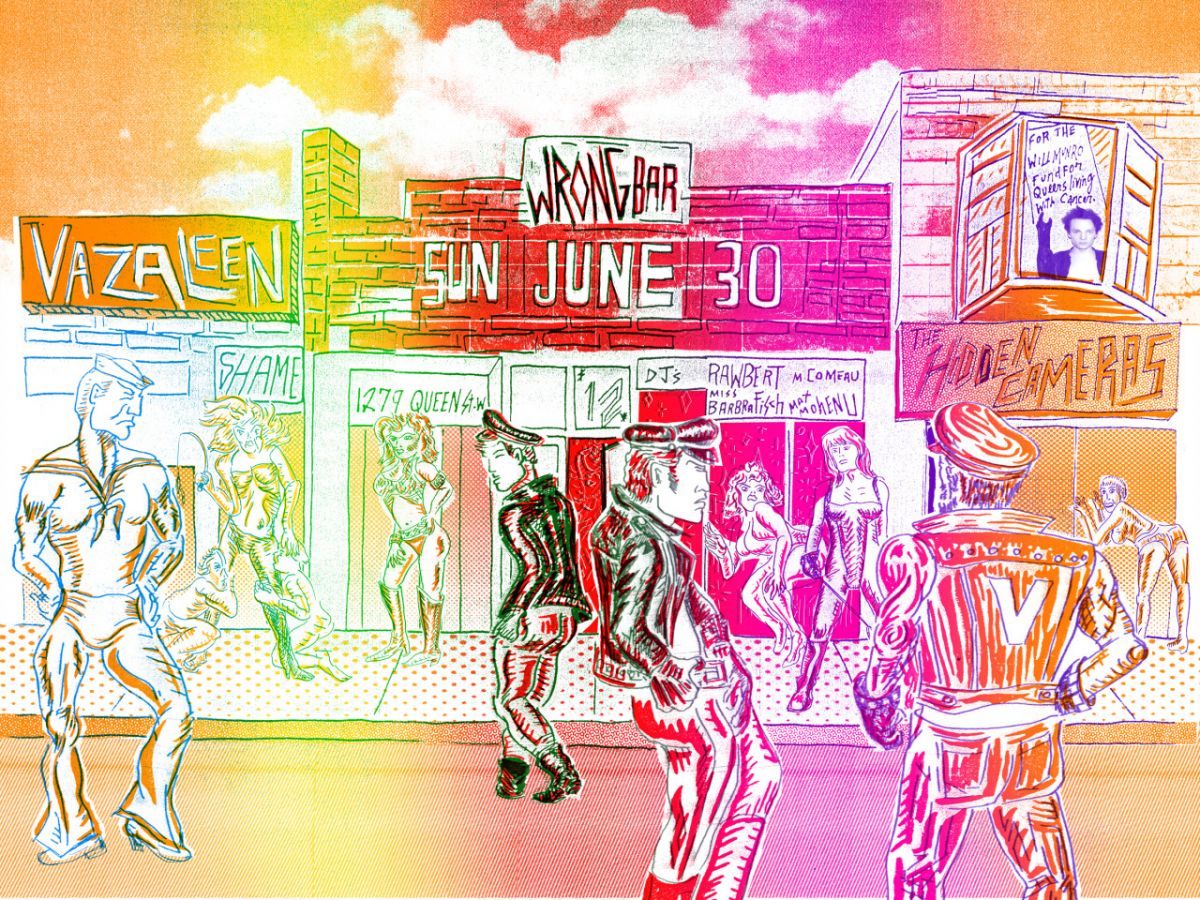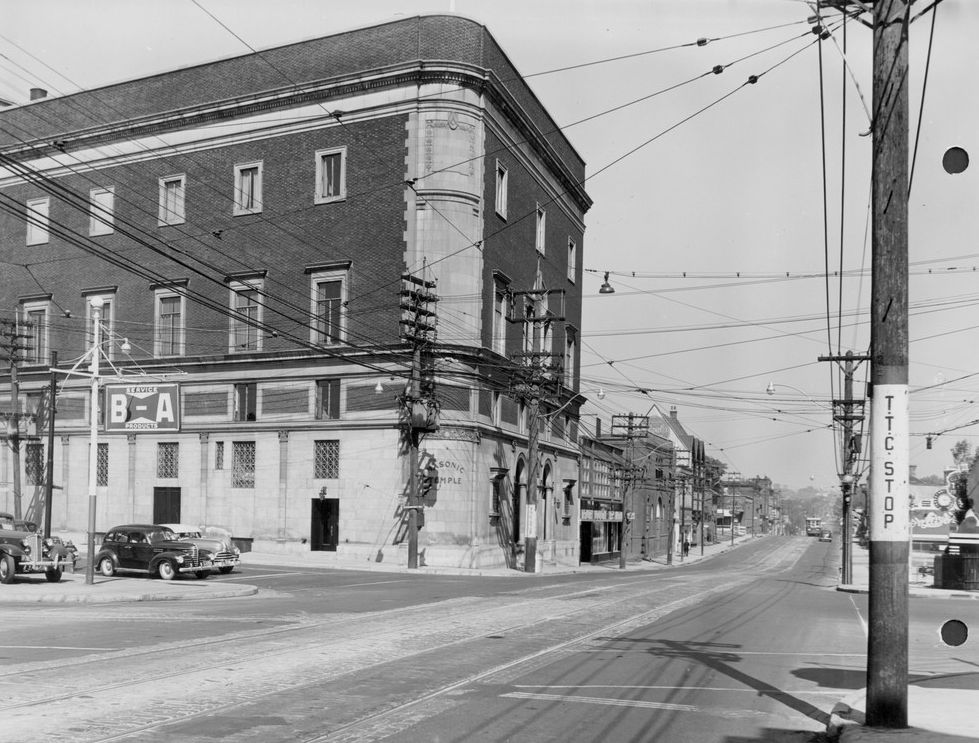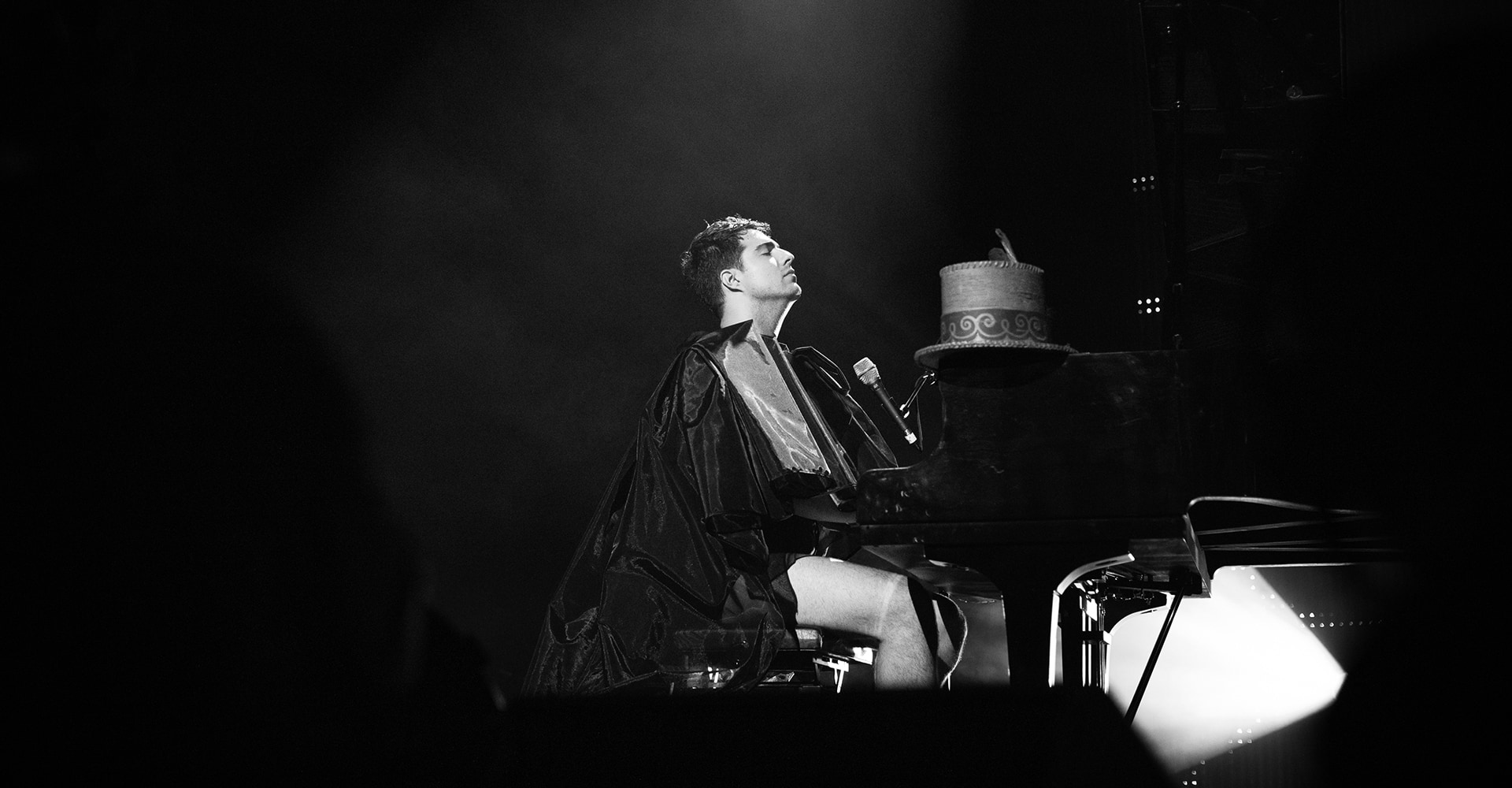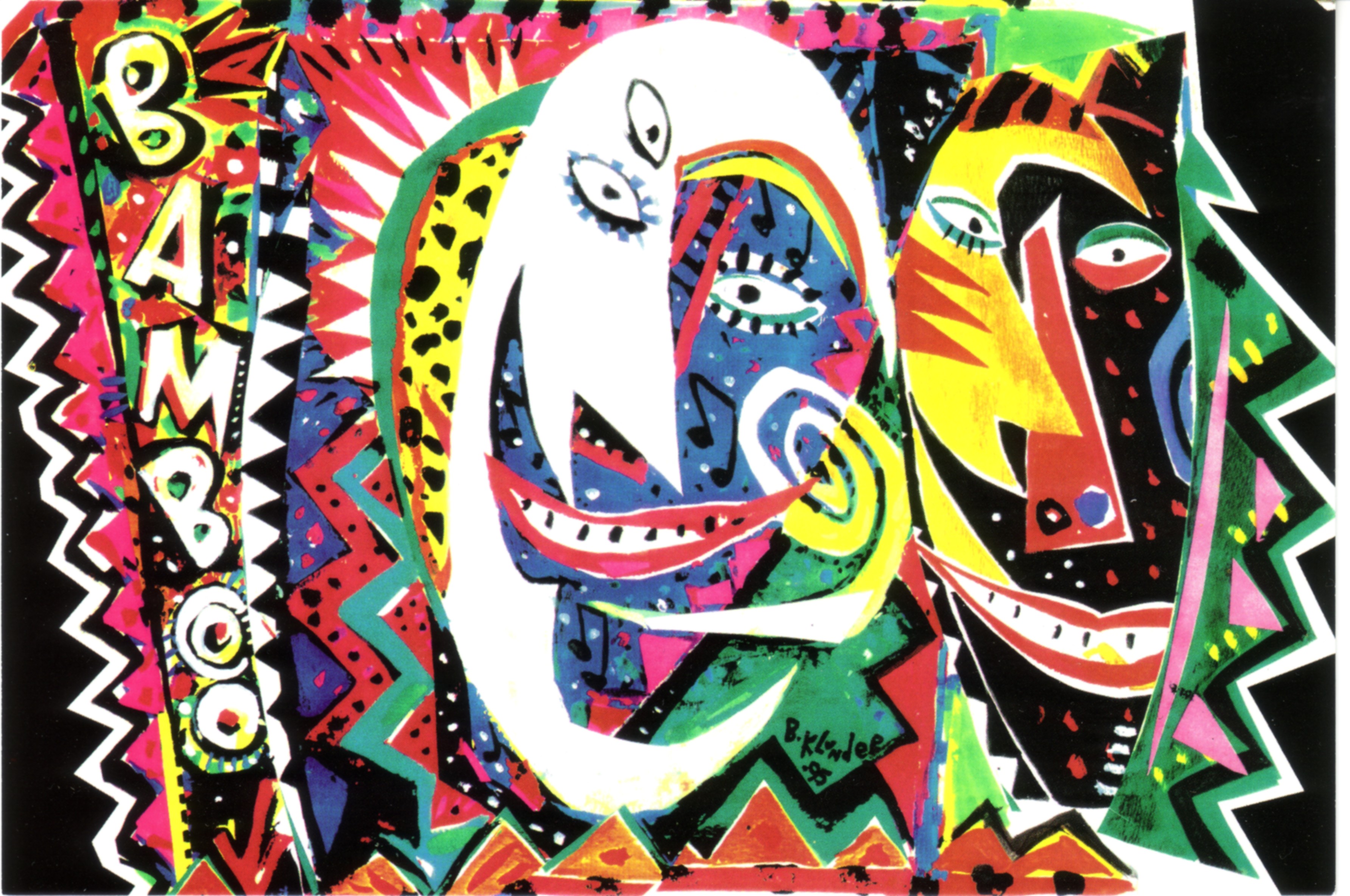
Like many artists, Will Munro (1975–2010) used music to bring people together and to build community.
He made no distinction between his many roles as an artist, organizer, DJ, music promoter, and activist – these creative outlets allowed him to find his people and make a valuable contribution to Toronto's music and arts culture.
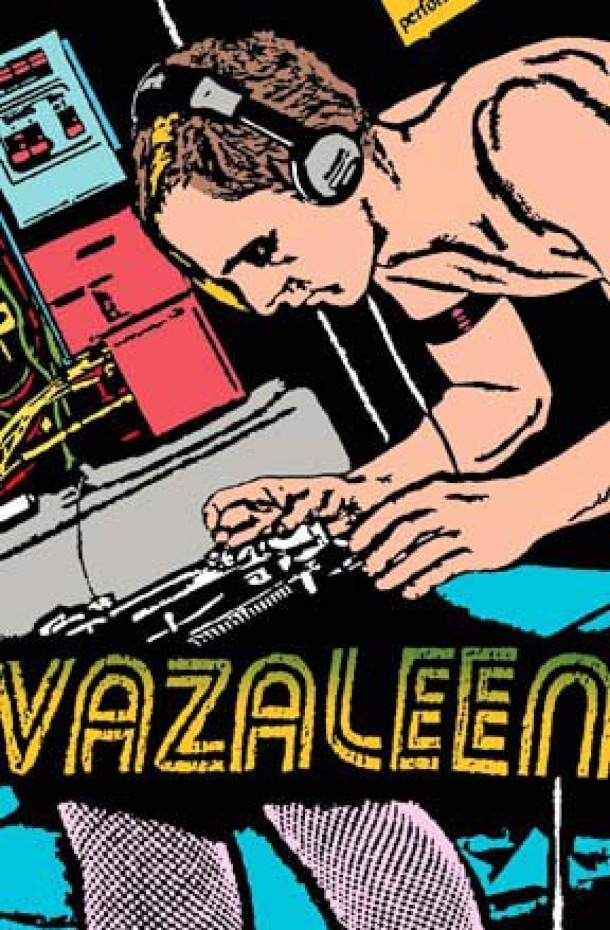
Blurring the lines between performance and visual art, Will loved to work with his friends, like Daryl Vocat, who illustrated him deejaying at Vazaleen for Xtra! magazine.
Illustration by Daryl Vocat. Courtesy of Xtra! Magazine.
Australian-born and raised in Mississauga, Will moved to Toronto to attend the Ontario College of Art and Design (OCAD). He was a punk DIYer: challenging gender, intimacy, sexuality, and making private public.
Will wove people together through his work. When he arrived in Toronto, he felt there wasn’t a place in Toronto's Gay Village where different kinds of folks identifying as LGBTQ+ could come together and dance.
I had always longed for — but could never quite find — a queer scene that included more than its trademark promiscuity, game-playing and overindulgence.
But here, up north, fortune was mine, and the world [Will Munro] brought into being felt more loving than sexy, more open than sketchy, more direct than gamey and more generous than stingy...
Michael Cobb, friend of Will Munro, 2020
Vazaleen
The turn of the milennium inspired Will to create and celebrate the future. In November 1999, Will approached the El Mocambo's music booker Dan Burke about the potential of holding a new music event at the historic venue inspired by queer art and culture. The first dance party, originally called Vaseline and held two months later, was such a success that it became a monthly phenomenon.
The name soon changed its spelling to Vazaleen to stop litigation from the petroleum jelly brand. Vazaleen later moved to Lee’s Palace and became as queer activist and Will's friend, Alex McLelland, described it, "the heart of alternative queer culture in Toronto."
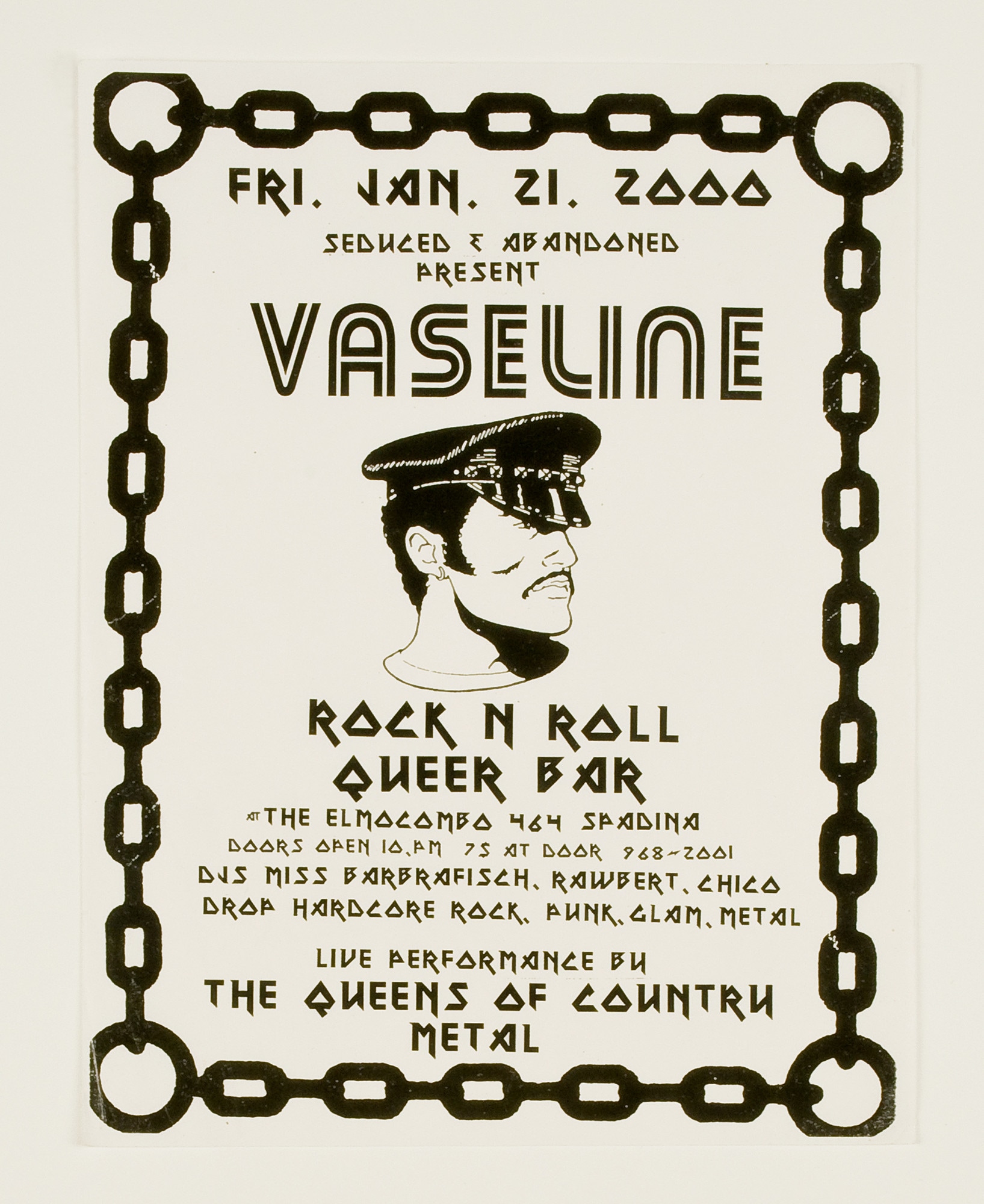
The poster for the first Vaseline party at El Mocambo made use of queer coding of BDSM and kink culture. The chain and hat imply power and authority, while the mustache is a throwback to the 1970s, when much of queer culture was still undercover.
Courtesy the Art Gallery of York University and Paul Petro Contemporary Art.
Creating Inclusive Culture
Will helped create a more inclusive culture welcoming all genders, races, and ages into a community of love; he created not just an event, but a space, where everyone could come and celebrate who they are.
Vazaleen parties in Toronto became known on the international queer map as a place to go, be who you are, take your clothes off, dance, make-out, and be safe.
As a punk rocker and music promoter, he brought in both local and international queer punk and rock bands: Vazaleen hosted German punk rock goddess Nina Hagen and provided an early platform for Toronto-born feminist queer artist Peaches as well as local bands the Hidden Cameras and the Gossip.
Writer Sarah Liss described Will as "the bridge between hard core punks, drag queens, indie rock, and fetish parties."
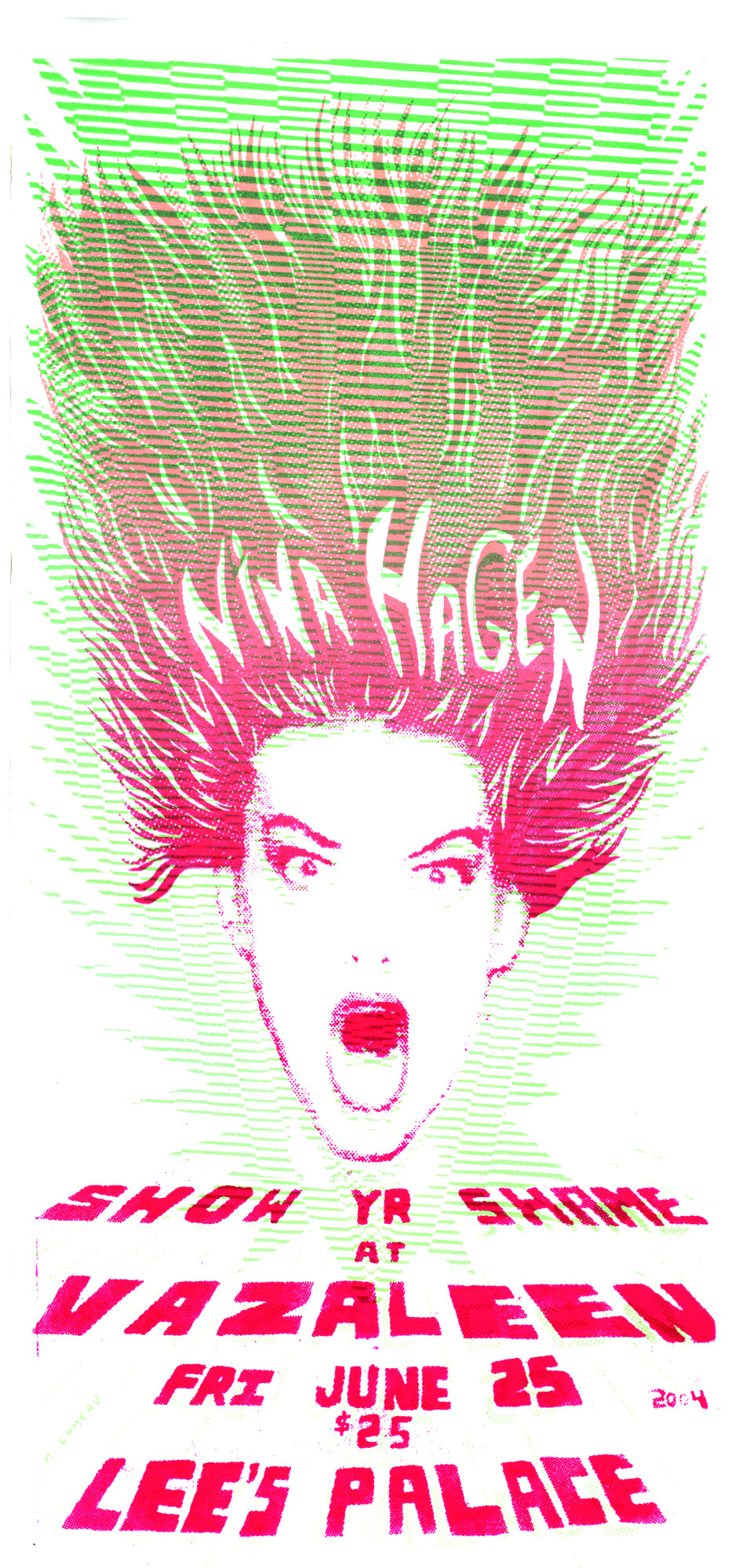
Poster for Nina Hagen performance, Vazaleen, Lee's Palace, June 25, 2004. Designed by Michael Comeau.
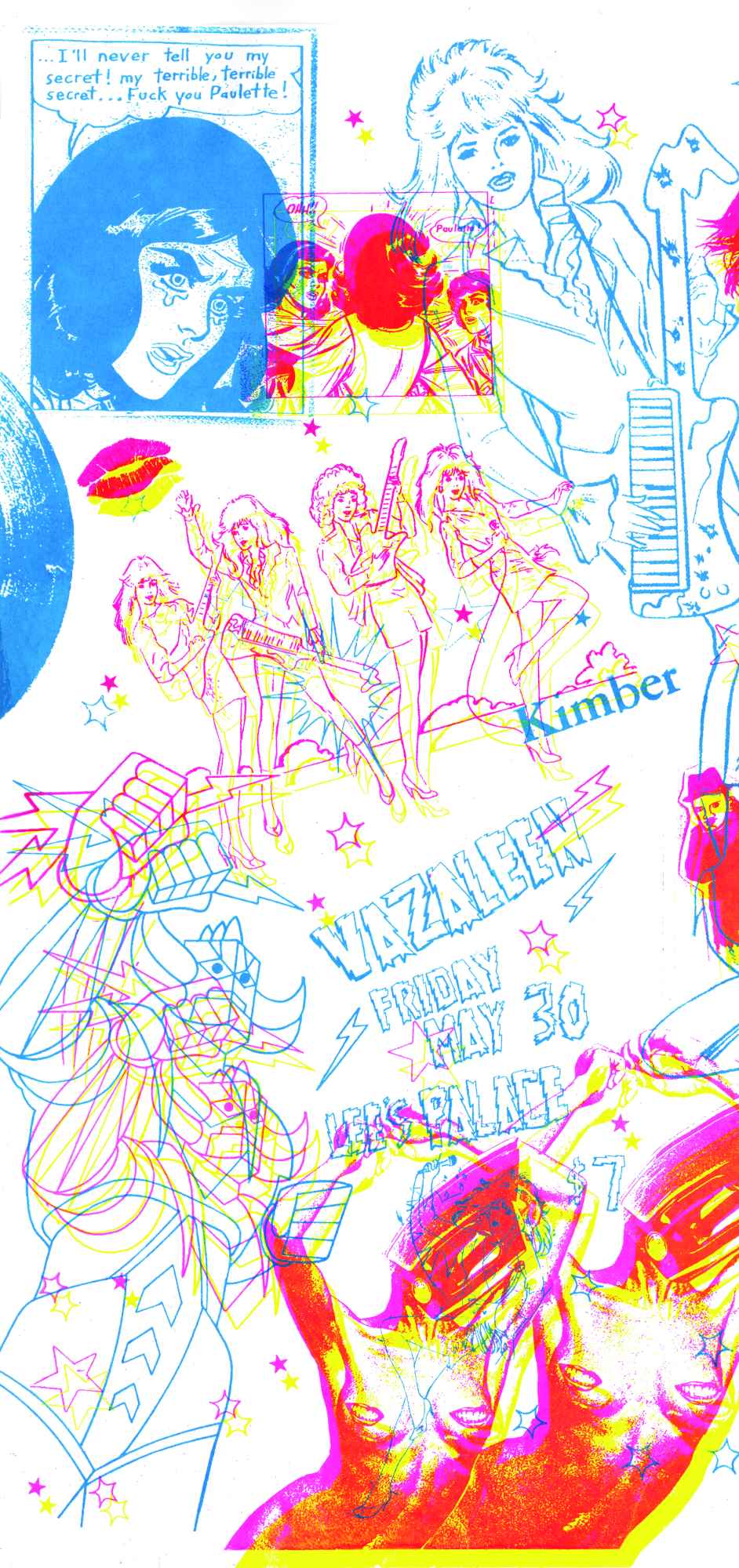
Poster for secret performance by queer electronic musician Peaches, Vazaleen, Lee's Palace, May 30, 2003. Designed by Michael Comeau.
Silk-screened poster advertising a Vazaleen fundraiser at Wrongbar with The Hidden Cameras, 2013.
Designed by Michael Comeau.
Watch: Mississauga Goddam
In 2004, Will Munro was cast in a music video for "Mississauga Goddam" by Toronto band the Hidden Cameras, whom he knew and worked with for his Vazaleen events. The song's title is an homage to Nina Simone's 1964 civil rights-themed "Mississippi Goddam." The Hidden Cameras' version describes the battleground for LGBTQ2+ rights in suburban areas of Toronto.
This online exhibition uses third-party applications including Spotify and YouTube. Check with your organization’s web administrator if you are unable to access content from these channels in the exhibition.

The video for "Mississauga Goddam" was directed and produced by the band's lead singer and guitarist Joel Gibb and was filmed, appropriately, in Mississauga. Please note: this third-party video does not provide closed captions.
View TranscriptMississauga goddam
Bears the treachery of my own man
I'll be wearing my disguise
Until I rid my life of Mississauga goddam
Mississauga people
Carry the weight of common evil
And go about their lives
With a whisper and a whine about Mississauga goddam
Mississauga skyline
Filled with the shadows of the power line
With the garbage and refuse
We'll build a mountain to the moon on top of Mississauga goddam
Mississauga goddam
A territory in the sky will brighten up my life from Mississauga goddam
Mississauga goddam
Mississauga goddam
Mississauga goddam
Mississauga goddam
Mississauga steeples
Chopped by supermarket heathen
Soot soon to paint the sky
The territory leads my mind from Mississauga goddam
Mississauga goddam
Bears the drudgery of my old man
I'll be wearing my disguise
Until I leave my life from Mississauga goddam
Lyrics for Change: 1964 vs. 2004
In 1964, Nina Simone released what she called her "first civil rights song." Written in response to racism and violence against Black communities in the Southern United States, Simone's song quickly became an anthem for the Civil Rights Movement. The song was banned in several Southern states for many years.
Just try to do your very best
Stand up be counted with all the rest
For everybody knows about Mississippi goddamPicket lines
—Nina Simone, Mississippi Goddam, 1964
School boy cots
They try to say it's a communist plot
All I want is equality
For my sister my brother my people and me
The Canadian indie band, the Hidden Cameras, took inspiration from Nina Simone's 1964 anthem for Civil Rights to write their own version, "Mississauga Goddam". The song raised awareness of the battles for LGBTQ2+ equality in suburban areas. Will Munro worked frequently with the band and designed the album art for their 2004 EP, The Arms of His 'Ill'.
Mississauga goddam
—The Hidden Cameras, Mississauga Goddam, 2004
Bears the treachery of my own man
I'll be wearing my disguise
Until I rid my life of Mississauga goddam
Mississauga people
Carry the weight of common evil
And go about their lives
With a whisper and a whine about Mississauga goddam
The Beaver
By 2006, the Vazaleen parties had grown to more than 1,000 people on some nights. Friends described it as becoming "like a monster that he hated" and "breaking Will's heart."
Munro ended the regular series, having already branched out to create electronic dance parties and events such as Peroxide in Kensington Market; No T.O.; and Moustache at Remington’s on Yonge Street.
In 2006, Will co-opened a restaurant and bar, The Beaver, in Toronto's Parkdale neighbourhood, where he also deejayed. Through these and other spaces, he removed the hidden prejudice and assumption toward the LGBTQ2+ community as one located in a single area of the city.
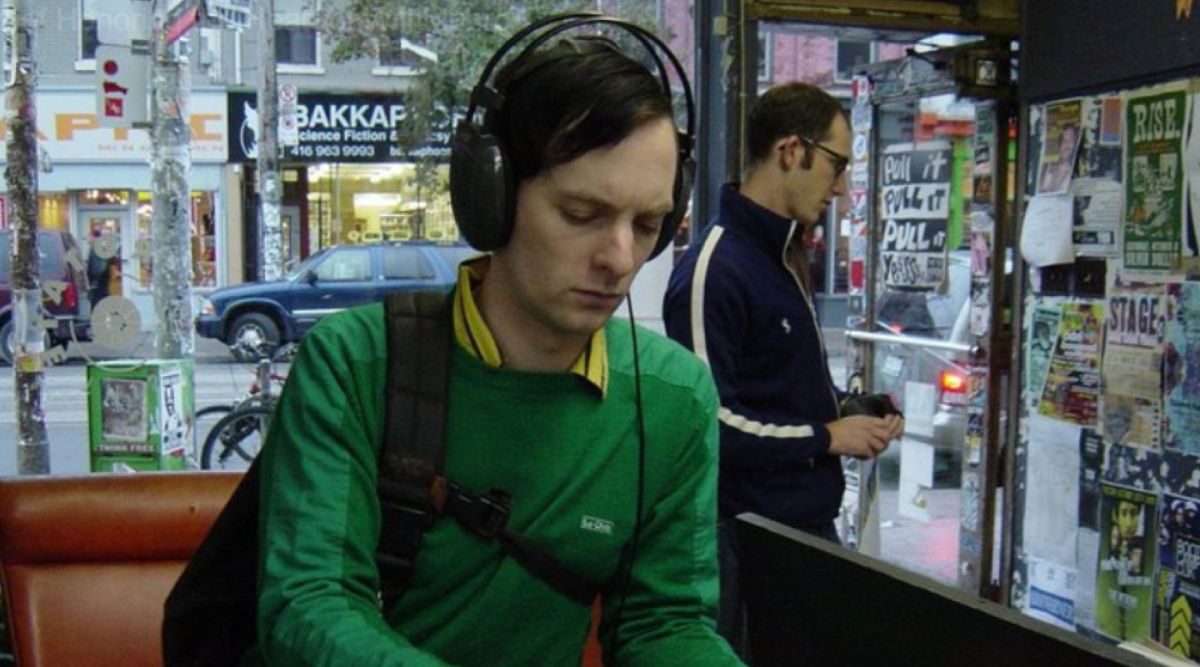
Photograph by Zoë Dodd.
There's more [and] different kinds of artist activity that's happening.
— Will Munro, on the intersection of performance and visual art, 2004.
All this is having an impact on my visual work. And my visual work is more and more going into performance.
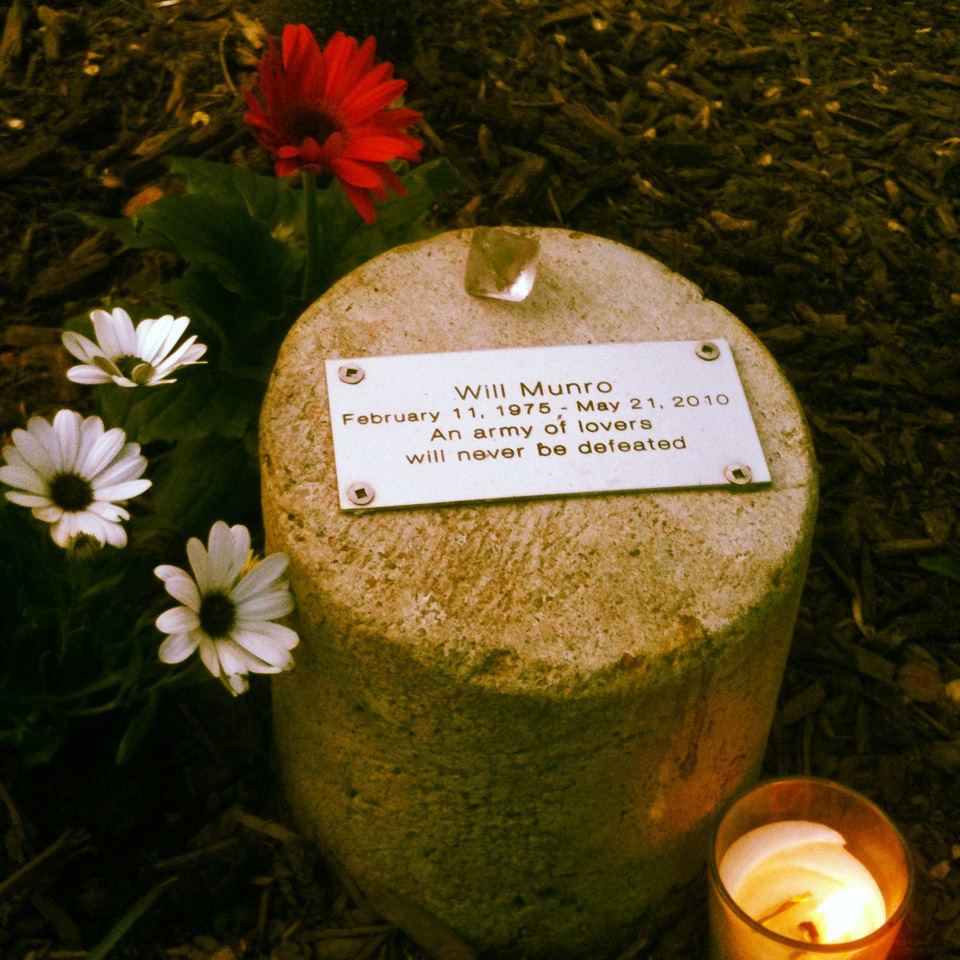
Memorial tree in Trinity Bellwoods Park with a commemorative plaque dedicated to Will. The lines of a Rita Mae Brown poem, "An army of lovers will never be defeated," was Will's personal motto.
Photograph by Zoë Dodd.
"An Army
of Lovers..."
In May 2010, Will died at age 35, after living with brain cancer for two years.
After his death, friends and fans gathered at Trinity Bellwoods Park to celebrate the life and mourn the loss of a friend and community leader.
In the years following, Will’s family and friends have hosted tribute Vazaleen parties during Pride, as a celebratory memorial and community fundraiser with funds going to the Will Munro Fund for Queer and Trans People Living with Cancer (trusteed by The 519), which provides emergency financial assistance to LGBTQ+ people of all ages living with cancer in Ontario.
Listen: The Queer Songbook Orchestra
Other Torontonians have taken inspiration from Will Munro's life and how to build community through music. The Toronto-based Queer Songbook Orchestra is a 13-member chamber pop ensemble dedicated to exploring and lifting up queer narrative in pop music. Founder and Artistic Director, Shaun Brodie, talks to Heritage Toronto about the QSO as well as finding and building safe communities through music.
This online exhibition uses third-party applications including Spotify and YouTube. Check with your organization’s web administrator if you are unable to access content from these channels in the exhibition.

Recorded for Heritage Toronto, 2019.
View TranscriptMy name is Shaun Brodie and I'm the artistic director of the Queer Songbook Orchestra or the QSO as we call it to save time. So the QSO began in 2014. And it's essentially a collective of queer and allied musicians and storytellers who have sort of come together to explore and uplift queer narrative through the lens of pop music.
So, we're a core of 13 people which are primarily musicians. The group is a bit of a hybrid of people from a pop background and jazz to more of a classical background. So we have these sort of varying layers in the group. And what we do is explore historical and personal narratives that have a queer core to the story and that are connected to a particular song.
Yeah, the QSO wouldn't exist without a storytelling element to it. It's very integral to what we do. The stories are really what get to the sort of deeper and far more emotional sort of aspects of our shows. And you know the work that we're doing. Like, in our shows, it's not been uncommon for someone in the audience to feel emotional or overcome or, you know, cry. It's not been uncommon for the person telling the story to get a little overcome and cry. It's not been uncommon for me, myself, when I'm talking to the audience to start crying, which is not something I really anticipated in the early days of like imagining this project and what it would be. But you just sort of in that moment sort of feel yourself kind of compelled to and because I think there is this sort of safety that you feel within the room in that because of the stories we've been sharing and this sort of warmness that's kind of enveloped the space.
Seeing like another person's perspective through what they're…they're talking about. And in that way diversity has been a really important part of our shows to include trans stories and non-binary stories and stories from people of various backgrounds. So that, you know, a recent immigrant and their perspective of moving to Canada from a country where it was illegal to be to be queer. All these kinds of stories can, even if it's not like your own, although…maybe it is? Or in some kind of small seed-like way it could be.
And if not, you might really learn something about somebody else's experience. And if you're straight and in that experience, it might really kind of be unlike something you've experienced or thought about before. But it might…give you a little more compassion for these people who do identify this way or who have had these experiences.
Dive Deeper
An Army of Lovers: A Community History of Will Munro. By Sarah Liss. Toronto: Coach House Books, 2013. Book.

